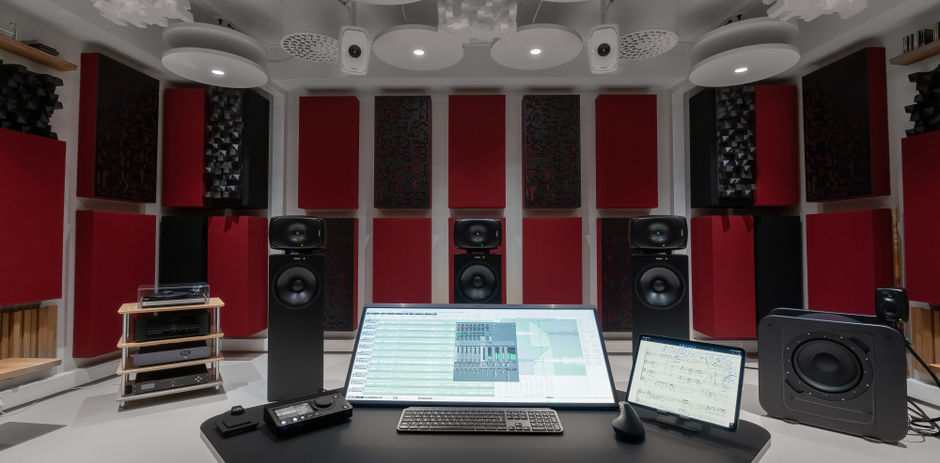Is there not something of an elephant in the room when discussing music reproduction, that being stereo, the high technology of the 1930s.
Stereo is missing so much spatial information that whichever way you cut it, I think the limit for music reproduction is always going to be stereo recording. When I say this I'm talking, best case scenario, stereo mic'd recordings of live music, obviously any sound processed and panned through a mixing desk is false (not an accurate representation of the sound as it was played).
When I hear people say "it was as if the singer/band was in the room" about a stereo system, I have to say, I pull a slightly befuddled look. Has anyone here truly been convinced the a real person was singing or a band playing in their room from a stereo speaker system, so much so that if someone was to blindfold you and lead you into a room where a good stereo was playing, you'd say "this is great, I'm going to go talk to the singer right after they finish". Has anyone actually experienced something like that?
Anyway, I suppose the point of the thread is there are a lot of people here who call themselves objectivists, but objective to what? If you want objective reproduction of a stereo recording, then that is likely quite possible, but it will always fall short of sounding like live music, because stereo is so limited in recording and then conveying the sound as it arrives at the listener at a live music event.
I don't think people are going to move past stereo, generally speaking, because the drive (for the majority) is towards fewer and smaller speakers, but if objectivity is being objective to a stereo signal, then it is never going to get very close to sounding like live music, which I suppose is what many (most?) are really looking for. It can be enjoyed for what it is, of course, but then what is the objective? To be objective to a (significantly spatially flawed) stereo recording or to reproduce the sound as it was in the room in which the music was playing, that is the question.
I was prompted to post the thread by the people that have a dig at those listening to and spending money on vinyl playback equipment. I'm not arguing for vinyl superiority over digital, it is inferior in a technical sense, but I do feel like saying to them....uh, you know you are listening to stereo, right....stereo....from the 1930s...with all of the flaws that entails.
Stereo is missing so much spatial information that whichever way you cut it, I think the limit for music reproduction is always going to be stereo recording. When I say this I'm talking, best case scenario, stereo mic'd recordings of live music, obviously any sound processed and panned through a mixing desk is false (not an accurate representation of the sound as it was played).
When I hear people say "it was as if the singer/band was in the room" about a stereo system, I have to say, I pull a slightly befuddled look. Has anyone here truly been convinced the a real person was singing or a band playing in their room from a stereo speaker system, so much so that if someone was to blindfold you and lead you into a room where a good stereo was playing, you'd say "this is great, I'm going to go talk to the singer right after they finish". Has anyone actually experienced something like that?
Anyway, I suppose the point of the thread is there are a lot of people here who call themselves objectivists, but objective to what? If you want objective reproduction of a stereo recording, then that is likely quite possible, but it will always fall short of sounding like live music, because stereo is so limited in recording and then conveying the sound as it arrives at the listener at a live music event.
I don't think people are going to move past stereo, generally speaking, because the drive (for the majority) is towards fewer and smaller speakers, but if objectivity is being objective to a stereo signal, then it is never going to get very close to sounding like live music, which I suppose is what many (most?) are really looking for. It can be enjoyed for what it is, of course, but then what is the objective? To be objective to a (significantly spatially flawed) stereo recording or to reproduce the sound as it was in the room in which the music was playing, that is the question.
I was prompted to post the thread by the people that have a dig at those listening to and spending money on vinyl playback equipment. I'm not arguing for vinyl superiority over digital, it is inferior in a technical sense, but I do feel like saying to them....uh, you know you are listening to stereo, right....stereo....from the 1930s...with all of the flaws that entails.

